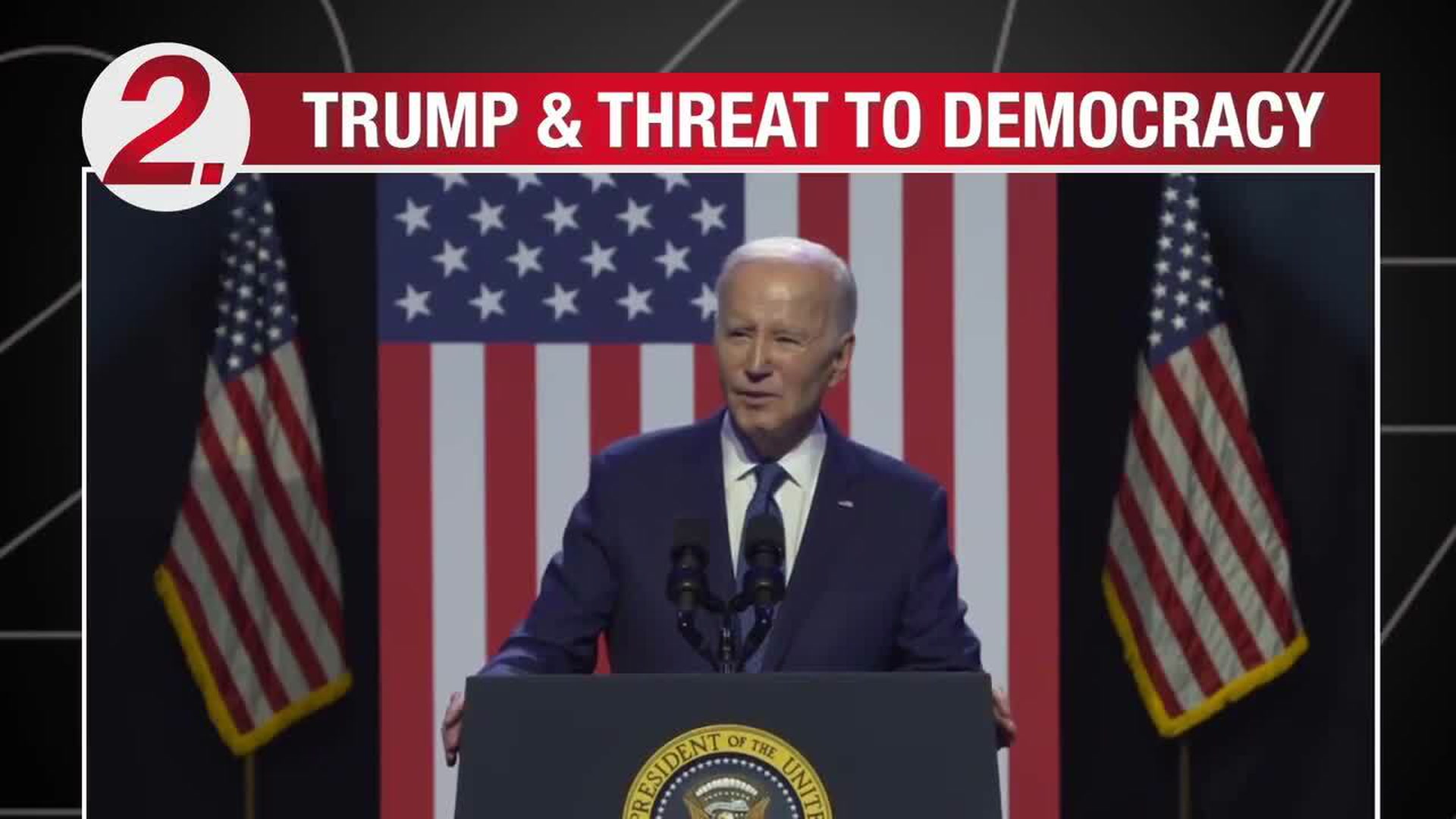(CNN) — Editor’s Note: Adam Kinzinger is a CNN senior political commentator and a former Republican congressman from Illinois. He served 10 years on the House Foreign Affairs Committee. Kinzinger is also a lieutenant colonel and pilot in the Air National Guard. The views expressed in this commentary are his own. Read more opinion at CNN.
Twice in 2011, I was awakened by pounding on the door of my Washington, DC, apartment. During the first of those incidents, no fewer than five officers stormed in, guns drawn, demanding that I tell them where “Tina” was, and if she was all right.
Law enforcement had been sent to my home in response to a non-existent emergency phoned in by an anonymous caller. Police had closed off the entire street while a helicopter hovered overhead. I was a victim of swatting.
Swatting occurs when a false report of gunfire or some other emergency is phoned to local police dispatchers who send officers, medics and even SWAT teams to a particular address. Expensive resources will have been wasted and the people the swatters want to frighten are scared out of their wits.
Both incidents happened about a year after I was elected to Congress. The second incident, which took place just a week after the first, was much less intense, with only a couple officers pounding on my door at 3 a.m.
I later learned from law enforcement that my having been swatted apparently had nothing to do with my job as a newly elected official: Apparently, a scorned lover thought their ex-partner still lived in the apartment I had moved to a short time earlier.
Even though I wasn’t the intended target, the shock and the potential danger posed to me and my neighbors in the building during the police operation was substantial.
On Sunday, speaking on NBC’s “Meet the Press” program, Republican presidential contender Nikki Haley revealed details about a swatting incident that occurred at her South Carolina home just last month — and said it wasn’t the first time it had happened.
Haley said she and her husband were not home when the swatting episode took place, but that her elderly parents were.
“I will tell you that the last thing you want is to see multiple law enforcement officials with guns drawn pointing at my parents and thinking that something happened,” the former South Carolina governor told NBC. “It was an awful situation,” adding that “it wasn’t the first time” that it happened.
At least one case of swatting has led to the death of the individual to whose home police were sent. In 2017, a swatting that targeted a Wichita, Kansas, man named Andrew Finch escalated. The local police department responded to a false report that a man had shot his father and taken family members hostage and was threatening to light the house on fire and kill himself.
With police gathered outside, Finch went to his front door. After he dropped his hands as officers were telling him to raise his arms, he was shot to death by a police sniper. Although it wasn’t linked to politicians, as many prominent cases are these days, Finch’s death shows us that swatting can turn deadly.
The word “swatting” comes from “Special Weapons and Tactics” or SWAT teams that sometimes rush to targeted homes. The FBI described swatting as a new phenomenon in 2008, just a few years before I was a victim of it. It’s been in the headlines recently because of a spate of incidents involving public officials. A new FBI unit created last May to monitor the incidence of swatting across the US has identified more than 500 cases since its inception. A number of public servants are being targeted in what appear to be acts of alarming political intimidation.
When prominent public officials are victims of swatting, one can’t always prove a cause-and-effect relationship between inflammatory rhetoric posted online or delivered during a speech and a caller’s reckless false emergency call to 911.
In one recent case, GOP Florida Sen. Rick Scott revealed at the end of December that his home was swatted during the holiday break. “These criminals wasted the time & resources of our law enforcement in a sick attempt to terrorize my family,” read a message on X, formerly known as Twitter, written by Scott, one of a number of Republican officials to have been targeted by swatting since December. Another Republican member of the US Congress, Rep. Anthony Gonzalez of Ohio, has suggested that threats of violence have influenced his decision to abandon public service rather than risk the lives of his family members.
Politicians have to do more to apprehend and punish the perpetrators of these dangerous crimes. We need tougher laws to protect public servants, and some states are increasing penalties for perpetrators of swatting. Last year, Ohio made it a felony to call in a false emergency if it leads to a law enforcement action. Meanwhile, Virginia last year stiffened penalties, making swatting calls punishable by up to 12 months in jail.
But we need more than just stiffer punishment. We also have an interest in toning down the potentially incendiary rhetoric that ignites this kind of dangerous behavior by dangerous and misguided people. Some of the most prominent victims of swatting in recent months have been associated in some way with former President Donald Trump. As The Washington Post reported recently, “While some on the right have been affected, many targets share a common attribute: They have done or said something that has earned Trump’s ire.”
Just this month, a day after Trump berated Judge Arthur Engoron, who is presiding over his New York civil fraud trial, as “TRUMP HATING” on social media, Engoron was swatted; A caller reported to police that a bomb had been placed at Engoron’s home. A contingent of police officers, including members of the local bomb squad, rushed to Engoron’s residence, but no bomb was discovered.
Other officials involved in Trump-related cases have also been swatted in recent weeks. Jack Smith, the special prosecutor in two criminal cases involving Trump, was swatted on Christmas Day. On January 7, police received a call about gunfire at the home of Federal Judge Tanya Chutkan, who is presiding over a federal case in which Trump is charged with election interference. Again, the reported emergency was false.
Shenna Bellows, the secretary of state in Maine, was swatted in late December after making public her finding that Trump had participated in an insurrection on January 6, 2021, when more than a thousand of his followers fought their way into the US Capitol, which she concluded made him ineligible to run for president in her state. Her decision has been suspended pending a US Supreme Court ruling in the case.
Swatting increases the likeliness of inadvertent harm to the public by the very people whose job it is to protect us. As someone who has received his share of threats from Trump supporters who remain incensed by my participation in the congressional investigation into January 6, I can tell you that it’s very difficult to stay calm when someone tells you they are ready to come kill you.
Officials have been swatted at every level – even the highest office in the land. Earlier this month, firefighters rushed to the White House after a caller falsely reported a fire. (President Joe Biden was at Camp David at the time.) Meanwhile, local elections officials across the country also are being threatened by people who don’t trust the vote-counting system. In Arizona, a Republican member of the Maricopa County Board who had been subject to threats after he certified 2020 election results, has decided he will not seek reelection.
In Nevada, an election official resigned after receiving numerous threats, including an email that said, “count the votes correctly as if your life depends on it, because it does.” According to an April report by the Brennan Center for Justice, 20% of election workers say that colleagues have left their positions due to threats and harassment. And I’m not comforted by a recent survey that estimated that about 12 million Americans think violence would be justified to put Trump back in power, according to one researcher at the University of Chicago.
I see the issue of violent threats and swatting through the lens of January 6, 2021. I am disturbed but no longer shocked by the intimidation and threats made against politicians and others. During the siege on the Capitol, I saw a snarling, violent mob of pro-Trump people assault police. Many of them looked like the people I represented as a member of Congress from Illinois.
Some looked like the men and women I’d run into at a coffee shop in the early morning or the folks I might meet at a town hall gathering. But under Trump’s spell, many of them have become angry warriors against anyone or anything Trump opposes in his speeches and social media posts.
As Trump has evoked violence in some of his public statements, including saying “death & destruction” would result from criminal charges against him, Attorney General Merrick Garland has said that the Justice Department is “witnessing a deeply disturbing spike in threats against those who serve the public.”
An article in The Washington Post reported that the number of federally charged threat cases is up 47% compared with the preceding five-year period. An expert quoted recently in the Post said that repeated threats and swatting directed against local institutions like schools and hospitals were likely “designed to harass, not to create danger. Sometimes it’s harassing someone for political or ideological reasons, and sometimes it’s a true threat,” said former FBI agent Katherine Schweit.
But with all due respect, as my former colleagues say in Congress, I don’t care about the intentions of those who make threats or carry out swatting.
If you act on a grudge against your neighborhood school principal or feel fired-up by Trump and harass a federal judge, you are committing a crime. And you are putting innocent people in danger because you can never predict what the outcome will be once armed law enforcement responds to someone’s home.
The-CNN-Wire
™ & © 2024 Cable News Network, Inc., a Warner Bros. Discovery Company. All rights reserved.

Video Source: Advocate Channel
- 'Lost Cause:' The slavery mythology Republicans are using to gaslight voters ›
- Republicans leaked her sex tape. But this Virginia Democrat isn’t staying silent. ›
- Threats of violence from the pro-Trump crowd are radicalizing moderate Republicans ›
- Republicans Lose Their Minds When Asked a Simple Question, Tell Reporter to 'Shut Up!' ›


















































